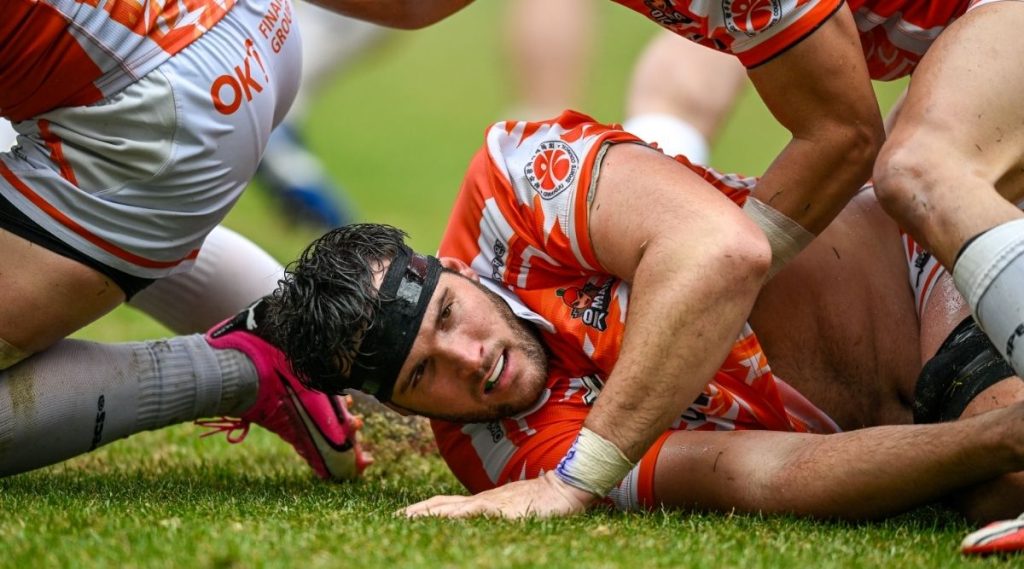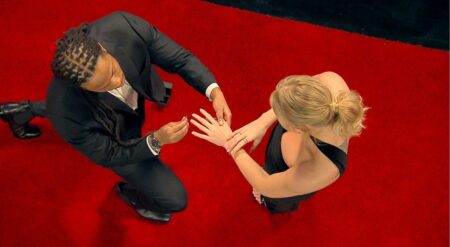South Korea’s Rugged Rugby: Conquer or Die isn’t just a competition show—it’s a celebration of rugby’s raw physicality, strategic depth, and unbreakable camaraderie. As someone who’s played rugby, experienced the thrill of unexpected wins, and taken hard lessons from games where the odds were stacked against me, this show hits in all the right ways. Rugged Rugby is as much about the players’ journeys as it is about the sport itself, and for rugby fans and newcomers alike, it’s an engaging, emotional, and educational ride.
Rugged Rugby begins with seven teams, each with a unique identity. Mixed among them are professional teams, club teams, and university squads. This mix adds complexity and drama, as the players range from seasoned national team members to younger, less-experienced athletes looking to prove themselves.
The stakes are clear from the start: these players aren’t paid in their regular league, so the 300 million won (approximately $210,000 USD) prize is not just a game-changer but a recognition of their hard work and dedication to rugby.
The early episodes focus on three challenges—scrums, tries, and kicking contests—that test the players physically, mentally, and strategically. Each challenge highlights a core aspect of rugby: the grit of the pack, the endurance of backs, and the ice-in-your-veins pressure of a kicker. These aren’t just warmups; battles within battles set the tone for what’s to come.
What really stands out is the drama built into the selection process. After the challenges, teams pick their matchups for the tournament. This creates natural tension as rivals are called out, strategic decisions are made, and the stakes rise. Watching a university team pick the nation’s strongest players as their first opponent? That’s the spirit of rugby right there—testing yourself against the best to prove you belong.
Rugged Rugby Captures the sport’s chaos and control.
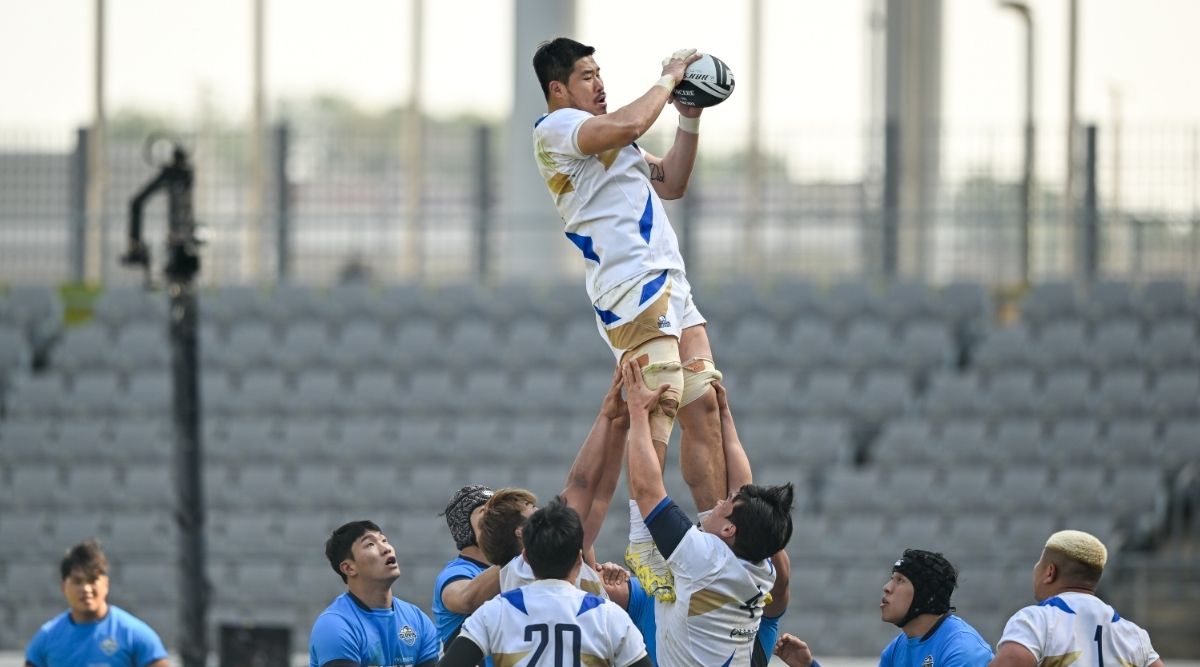
Rugby is often described as “controlled chaos.” Rugged Rugby captures that balance in full force. The physicality is unrelenting—scrums that leave players shaking tackles that echo through the pitch and a kicking challenge so intense it’s a brutal reminder of rugby’s unforgiving nature.
Yet, no matter how fierce the competition gets, it never descends into recklessness. The rules, enforced by sharp-eyed referees, are vital to keeping the chaos in check, ensuring safety without stripping the sport of its raw edge.
At one point in the competition, when things started to push beyond even rugby’s rough standards, the referees and team managers intervened, adjusting the rules on the fly. The game was veering toward something primal, and while rugby thrives on ferocity, it has its limits.
This isn’t a sport of chaos for chaos’s sake. The rules are there for a reason—not to water down the grit, but to keep the game honest, to uphold its identity as a sport of strength and discipline. It’s a reminder of why rugby is built on the principle of being rough, not reckless—a controlled storm that’s as much about respect as it is about resilience.
There is always humanity behind the hits.
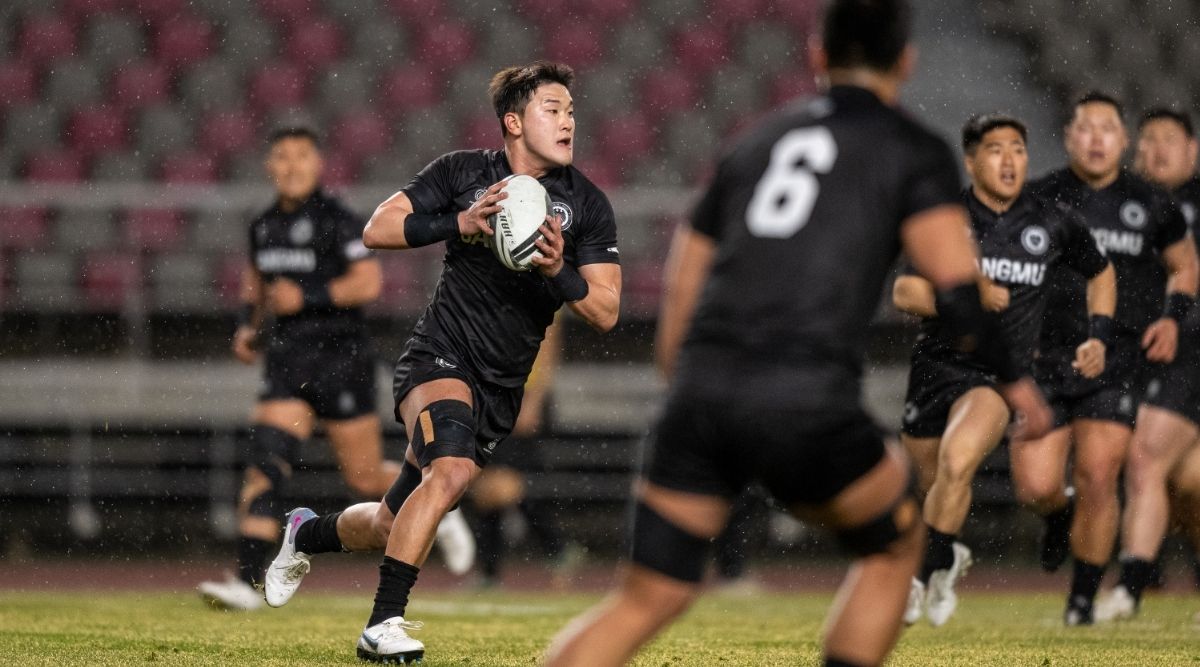
The best part about Rugged Rugby is how it captures the human side of the sport. The show pauses to show post-score huddles, team discussions, and moments of reflection—things you don’t usually get in a traditional match broadcast. These glimpses into the players’ dynamics tell you everything about their culture, leadership, and camaraderie. A team’s huddle after a try can say more about who they are than any stat sheet.
There’s also an honesty in rugby that the show nails. Players don’t fake injuries or waste time—the game keeps moving unless something serious happens. Even then, the injured player often pulls themselves to the side because the fight continues until the whistle blows. These moments remind us that rugby is as much about heart and resilience as it is about skill.
The players themselves are another highlight. The show does a fantastic job of humanizing them by focusing on their nicknames, imiji (image/reputation), and individual stories. Whether it’s the veteran proving their legacy like Chang Yong-heung or the younger player trying to make their mark like Fijian Emosi Labati, every athlete feels distinct. This adds depth to the competition, drawing you into the players’ personal stories as much as the collective drive of their teams.
Rugged Rugby highlights South Korea’s unique approach to the sport.
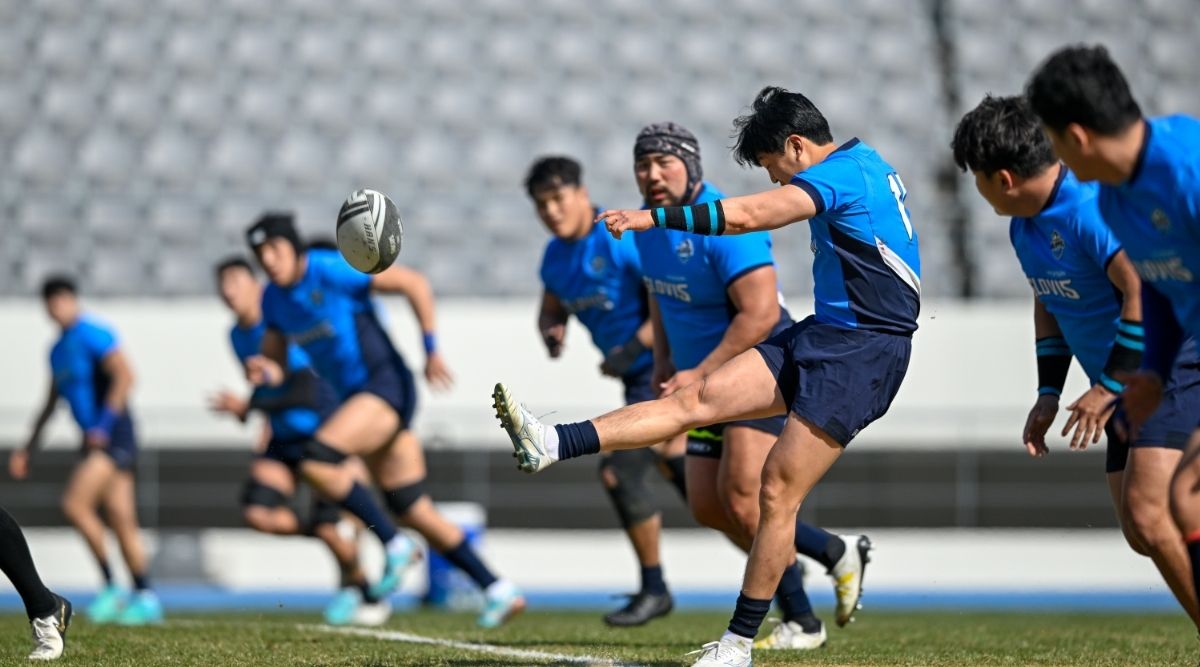
South Korea’s cultural approach to storytelling shines in Rugged Rugby. They’ve adapted elements of rugby’s global culture into something distinctly their own. For example, replays explaining rules and plays bridge the gap for viewers unfamiliar with rugby. They’re a teaching tool without slowing the pace, keeping the game accessible for newcomers while still respecting its complexity.
However, it’s important to note the episodes are long—some run over an hour and twenty minutes. This isn’t unusual for Korean competition shows, but it’s worth knowing going in. The length allows for a mix of match action, commentary, and storytelling, but the replays, while insightful, can sometimes feel like they’re dragging. It might be a bit much for fans who just want to see the game flow uninterrupted. However, for viewers who appreciate learning the game’s nuances, the replays and explanations are a strong addition.
What really sets the show apart from American competition shows is how grounded it feels. There’s none of the over-the-top campiness or gimmicks you might expect. Instead, it’s a thoughtful, respectful look at rugby, authentically blending competition with cultural storytelling.
As of the fourth episode, only the tournament’s first match has concluded. There’s still so much more rugby to play and drama to unfold as the competition progresses. If the fourth episode is any indication, the matches ahead promise to be intense, full of emotional highs and lows, and packed with the same heart and grit that rugby players and fans know so well. Every Tuesday until episode 14, viewers can expect some truly compelling rugby, both on and off the pitch.
Rugby’s heart is on full display.
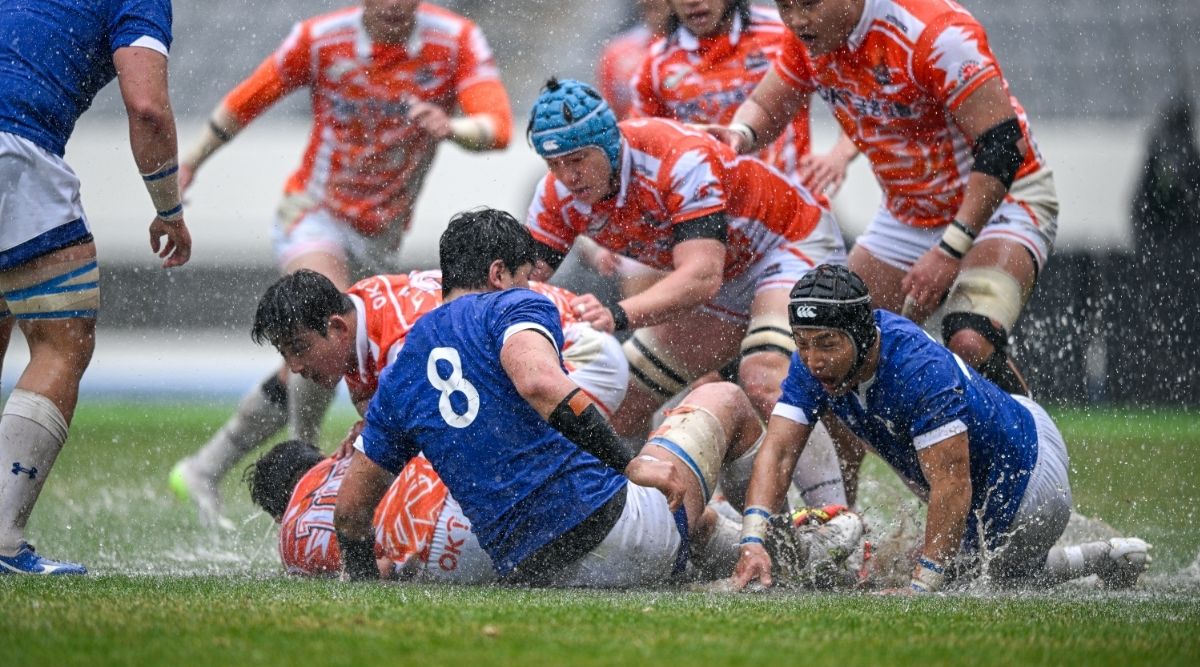
This show feels like the beginning of something much bigger—not just for South Korea, but for rugby as a global sport. Watching Rugged Rugby, I couldn’t help but imagine what it would be like if other countries took notice of this format. Imagine an all-star-style competition that brought together players from rugby powerhouses like New Zealand, England, Fiji, and South Africa, blending them with emerging rugby nations like South Korea and the United States.
A global stage like that wouldn’t just showcase the raw talent and cultural uniqueness of each team—it would introduce audiences to the personal stories of players worldwide, just as this show is doing for South Korean athletes.
Getting to know these players—their rivalries, quirks, and struggles—makes Rugged Rugby so compelling. It’s not just about the game; it’s about the people behind it. A format like this could help fans worldwide connect with rugby in a way that goes beyond the World Cup or regional leagues, building recognition and love for the sport in every corner of the globe. If South Korea can inspire that kind of ripple effect, it would be a massive win—not just for them but for the entire rugby community.
Rugged Rugby is a love letter to the sport.
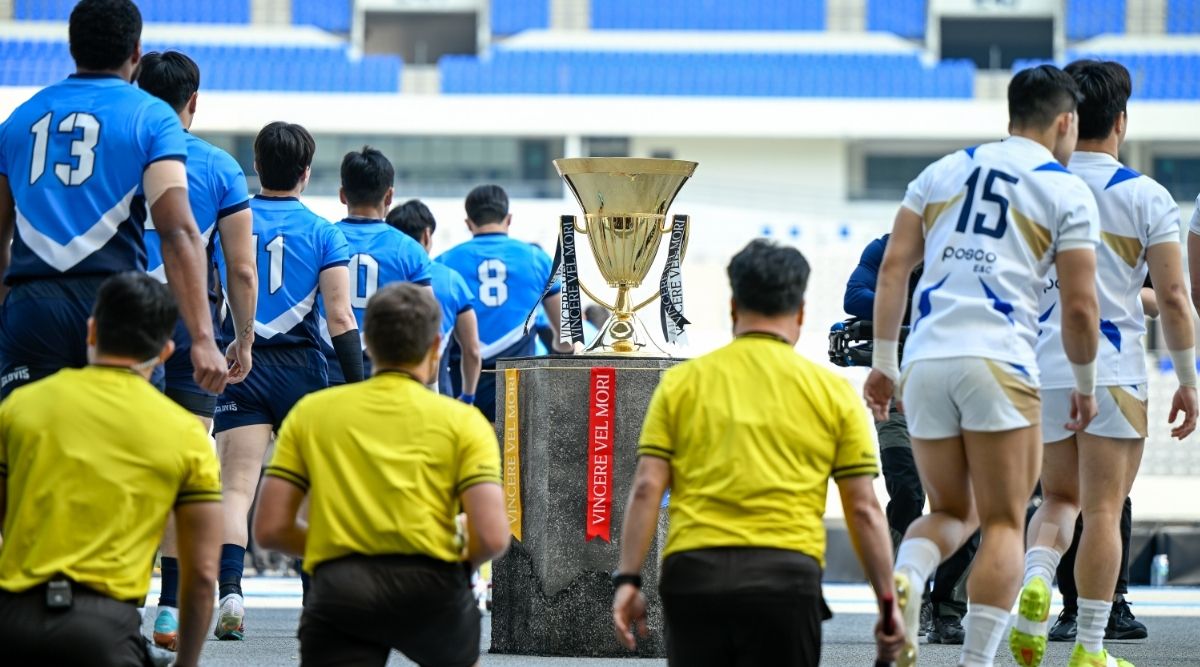
Rugged Rugby: Conquer or Die isn’t just a competition show; it’s a love letter to rugby. It’s about the grit, the strategy, and the humanity that make this sport unique. For rugby players, it’s a reminder of why we fell in love with the game. For newcomers, it’s an invitation to see what rugby is all about.
South Korea has done something incredible here—taking a global sport and presenting it in a way that feels fresh and accessible. This show has the potential to inspire a new generation of players and fans, not just in Korea but everywhere. As someone who’s lived and breathed rugby, I can say with confidence that this is what the sport needs.
If you’re a rugby fan, watch it. If you’re not, watch it anyway. Because rugby, at its core, is about heart, and Rugged Rugby has plenty of it.
Rugged Rugby: Conquer or Die is streaming now on Netflix.
Rugged Rugby Episodes 1-4
-
Rating - 8.5/108.5/10
TL;DR
If you’re a rugby fan, watch it. If you’re not, watch it anyway. Because rugby, at its core, is about heart, and Rugged Rugby Episodes 1-4 have plenty of it.

